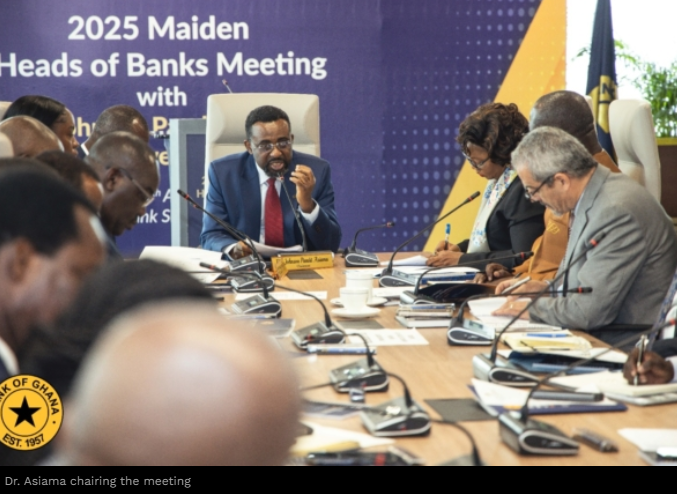The Bank of Ghana has reiterated its commitment to a flexible exchange rate system backed by sound economic policies to support business growth.
This assurance was given by the Governor of the Bank of Ghana, Dr. Johnson Asiama.
Speaking at a high-level thought leadership event organised by the Ghana Association of Banks in collaboration with Absa Bank, Dr. Asiama said the Central Bank is not interested in rigid exchange rate targeting or a predetermined value of the local currency.
“We are not pursuing any rigid exchange rate target or predetermined band. The Bank of Ghana remains committed to a flexible exchange rate regime — one that is anchored in fundamentals, responsive to shocks, and supported by credible policy tools,” he said.
“We remain vigilant and fully prepared to act in a timely and measured manner to preserve orderly market conditions and safeguard the broader macroeconomic stability necessary for financial innovation and inclusion to thrive,” he assured.
Reacting to the recent Fitch upgrade of Ghana’s sovereign rating, Dr. Asiama noted that the move is a testament to the progress made so far and the ongoing efforts to stabilise the local currency and the economy at large.
In his welcome address, Managing Director of Absa Bank Ghana, Edward Botchway, urged stakeholders in the financial sector to implement policies that will effectively regulate digital operations and build trust in the system.
“We need to self-regulate. We must ensure that we manage and control this process as effectively as possible in the interest of the customer,” he said.
He also stressed the need for consumer education to ensure individuals engage only with licensed financial institutions and avoid falling victim to fraud.
The event, themed “Banking the Last Mile: An Industry-Led Strategy for Accelerating Digital Finance,” brought together leaders from the banking industry, fintech sector, regulatory bodies, and public policy institutions. The goal was to explore strategies for expanding digital financial inclusion and reaching underserved communities across Ghana.



